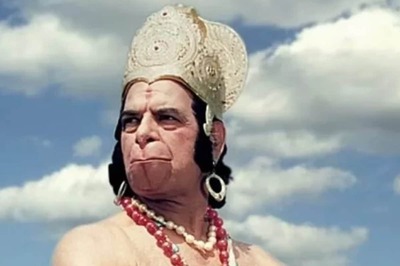
views
The Supreme Court's verdict from yesterday that allowed the Centre to recover Rs 92,641 crore in total adjusted gross revenue (AGR) from telecom operators in India could have a significant impact on consumers, but only in the long run. The reason for this can be attributed to the potential for growth in the number of users in India as of now, as well as the prospect of the next generation of connectivity technology being just around the corner.
Speaking to News18 on the matter, Navkendar Singh, research director, devices and ecosystem at International Data Corporation (IDC), said, "This (verdict) will have a major potential impact on the operators' capability to bid and quickly roll out 5G networks in 2020 or early 2021. Since 5G spectrum will be priced rather expensively, it will be interesting to see which operator has the financial wherewithal to aggressively bid for this critical technology."
Faisal Kawoosa, founder and chief analyst at techARC, agrees, stating, "The 5G roadmap could be stalled, and the pace of adoption delayed, due to the financial burden. This may surely hamper the prospect of all fresh investments in the telecom sector, and a scale down of operations is not ruled out for some of the telcos."
At the moment, only Reliance Jio, which recently posted continued profits but faces the issue of steadily declining per-user revenue, looks positively positioned to have the theoretical advantage in the market to make surplus investment in technologies such as 5G. Out of the total Rs 92,641 crore mandated by the Supreme Court to be recovered from operators, Jio owes only Rs 13 crore to the Department of Telecom (DoT), by virtue of being a new player in the space.
On the contrary, Bharti Airtel, the second largest operator in India, owes the DoT Rs 21,682 crore (including dues, interest, penalty and interest on penalty). The market condition is even worse for Vodafone-Idea, which has seen massive decline in revenue and users each month, and now faces a total debt of another Rs 28,308 crore. As a result, questions have been raised regarding how far can any of these operators sustain their position in India, and the kind of impact this may have on consumers.
Clarifying this, Singh says, "Not much would change in the short term. Given the potential headroom for growth in data users, the operators would keep the price battle on in an effort to bring more subscribers to their network plus aggressive efforts on ring fencing the current base. To that extent we might not see price hardening at least till H2 2020." Singh further expects the path ahead for Vodafone-Idea to be particularly difficult, stating, "This is a major blow to Airtel, and especially Vodafone-Idea. The industry is already under mountains of debt, and with this double whammy, challenges may lie ahead for Vodafone-Idea, in terms of running operations in its current avatar. This can mean that we will possibly see a near-duopoly of Jio and Airtel in the Indian market, soon."
Kawoosa, meanwhile, expects a sharper response on the consumer front of the industry. He says, "This could lead to increase in price of services, which looks inevitable now. Operators could possibly end low cost sachet plans, making access to communication difficult for the low income groups." However, Kawoosa does not expect any operator to exit the market right away, stating, "Potentially, we may eventually lose operators in the game, so less options might be there in the long run. But, existing operators have huge stakes in India, so it is very difficult for them to exit overnight."
Eventually, much will depend on how the payout scheme is spaced out, and how much time are the operators given to clear their dues with the DoT. Going forward, it remains to be seen how Airtel and Vodafone-Idea react to their market conditions, and reveal a more concrete roadmap that touches upon how this shakes up the industry, on the consumer front.




















Comments
0 comment